612,5 hours of TV and Radio recording – 18.5 hours a day, 245 copies of newspapers: the media monitoring unit of the EUEOM ensured that their analyses of media coverage in the run-up to the elections on 30 July was comprehensive and accurate. “Media monitoring by the EUEOM was conducted in accordance with an established methodology of quantitative and qualitative analysis”, explained media analyst Javier Gutierrez. Adding: “Content of both – state-owned and private media – was assessed based on the time and space allocated to political parties, candidates and other relevant actors. Also evaluated was the tone of media coverage, positive, negative or neutral, towards the different political players.” The attached charts give the graphic overview of the findings. For reference here also the respective section of the preliminary statement.
The preliminary statement said on the media:
Media operated in a generally free environment, but overwhelming bias in state media meant legal provisions for fair and balanced reporting were not respected The media landscape in Zimbabwe is largely dominated by state-owned or controlled media, with very little presence of the private sector. Allocation of broadcasting licenses has so far benefitted only radio stations directly or indirectly linked to the government and community radio stations are still to be licensed. The legal framework for media, while providing for fundamental rights, needs improvement. Laws such as the Access to Information and Protection of Privacy Act, the Broadcasting Services Act and the Public Order and Security Act contain provisions which are not in line with fundamental freedoms included in the Constitution such as freedom of expression, freedom of the media and access to information.
Media operated in a generally free environment and only a very limited number of cases of journalists injured or harassed were registered by the EU EOM during the observation period. The environment in the traditional media remained polarised, and in social media, some instances of abusive language and personal attacks were observed, especially in the lead-up to the elections.
Overall, election coverage in the media was not pluralistic. While print and electronic media at national and provincial levels made efforts to provide some coverage to minor parties, ZANU-PF and the MDC-Alliance largely dominated the election-related information presented to voters. In accordance with the Electoral Act, the state broadcaster Zimbabwe Broadcasting Corporation (ZBC) afforded free access to political contestants through various programmes (“The Manifesto”, “The Candidate” and “The Debate”) aired on state-owned TV and radio stations. Nevertheless, ZBC failed to abide by its legal obligation to ensure equitable and fair treatment of all political parties and candidates in its news and current affairs programmes. EU EOM media monitoring14 shows biased coverage by the state-owned media in favour of the ruling party, which received a total of 84.9%, 81.8% and 76.5% of election-related coverage (airtime) on ZTV, Radio Zimbabwe and Classic 263, respectively. Qualitatively, 44.5%, 14.4% and 10.2% of that coverage were reports portraying ZANU-PF in a positive tone, while 47%, 20% and 26.5% of the coverage was received by MDC-Alliance in the aforementioned media was reports in a negative tone. Furthermore, ZANU-PF and its presidential candidate benefited from extensive additional coverage on ZBC through news on government achievements and live broadcasting of activities conducted by Emmerson Mnangagwa as Head of State.Government-controlled newspapers The Herald and The Chronicle also heavily favoured ZANU-PF, by allocating 62.8% and 64.8%, respectively, of their electoral coverage to the ruling party. While 43.5% of the reports about ZANU-PF in both newspapers were presented in a positive tone, 59.3% of the coverage received by MDC-Alliance in The Herald and The Chronicle portrayed the opposition party in a negative tone. Such unbalanced reporting also characterised the coverage by private newspapers in favour of MDC-Alliance. Some news and opinion articles published by The Herald, The Standard and Newsday on 29 and 30 July violated the campaign silence period. Both ZANU-PF and MDC-A presidential candidates violated campaign silence period by sending out campaign messages on 29 July, through Facebook and in the course of a press conference, respectively.
ZEC, supported by the Broadcasting Authority of Zimbabwe and the Zimbabwe Media Commission, fulfilled its mandate to monitor media, but was ineffective in ensuring fairness and equitable coverage by broadcasters and publishers. The legal provisions in this regard lack a realistic mechanism for enforcement, as the Electoral Act confers limited power on ZEC to actually deal with media violations.
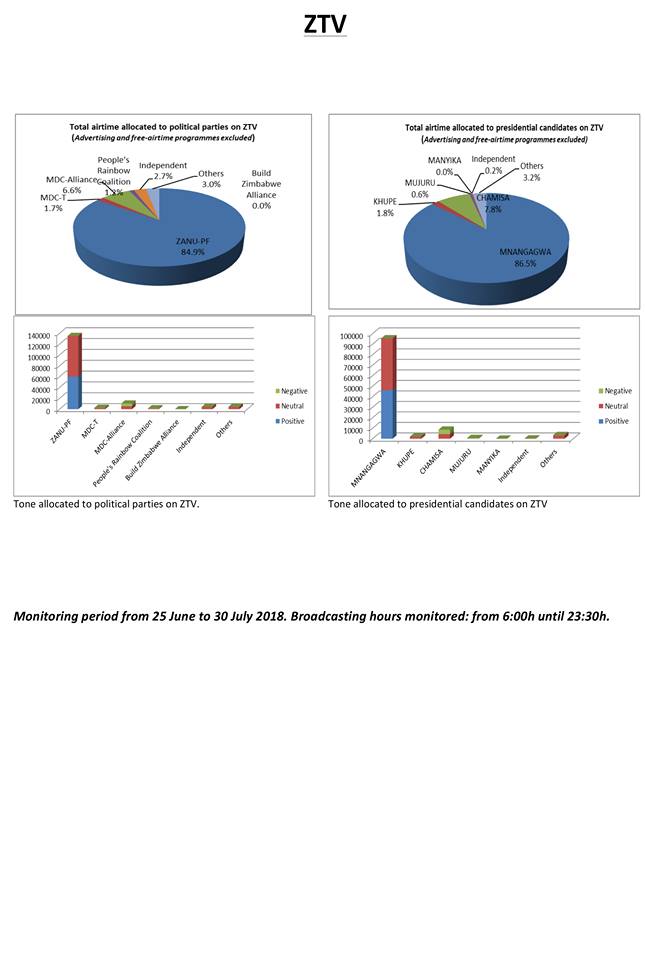
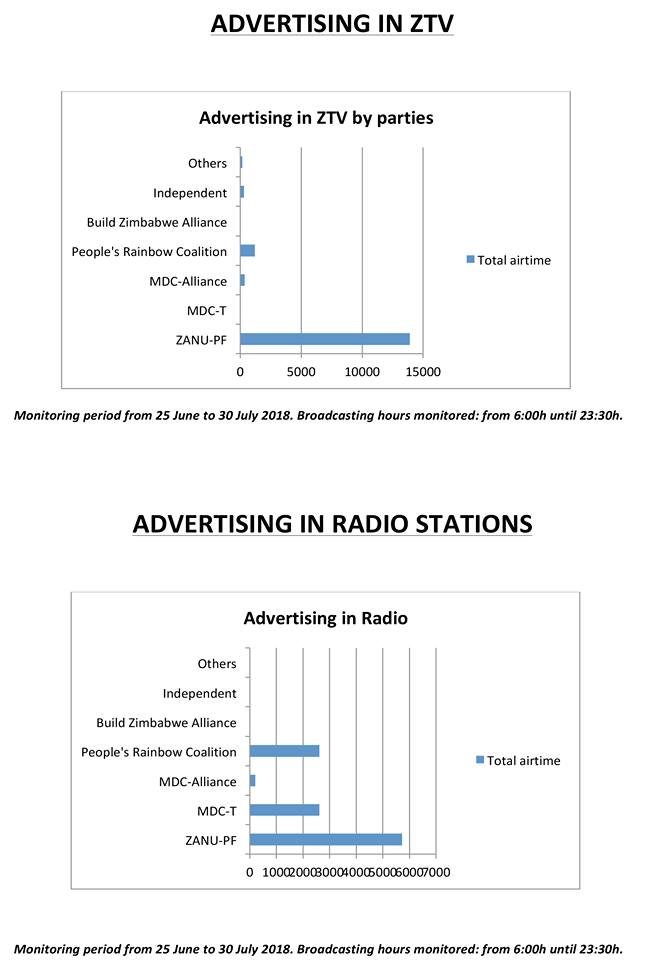
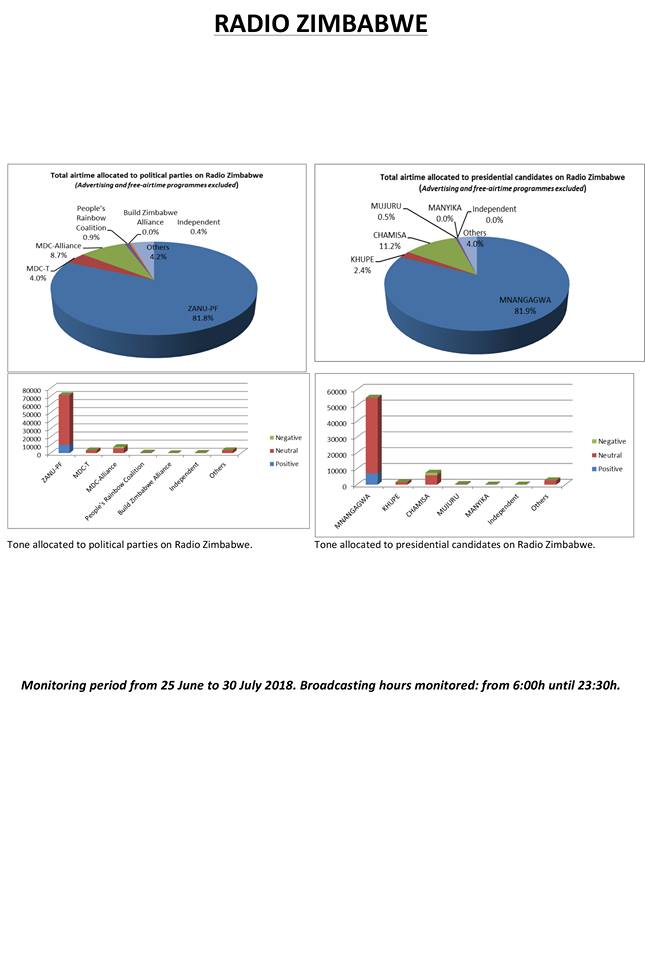
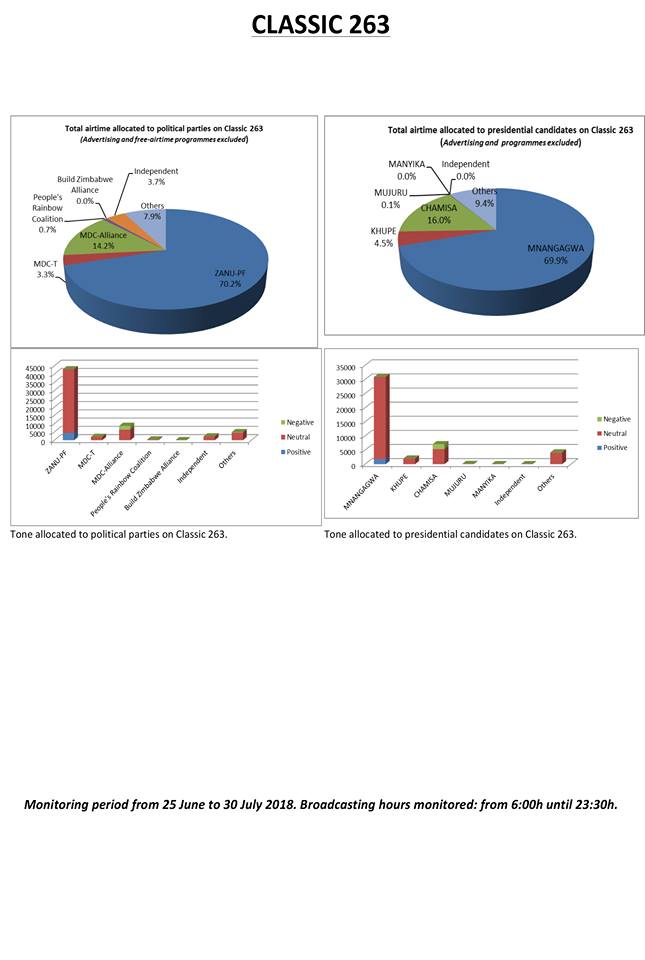
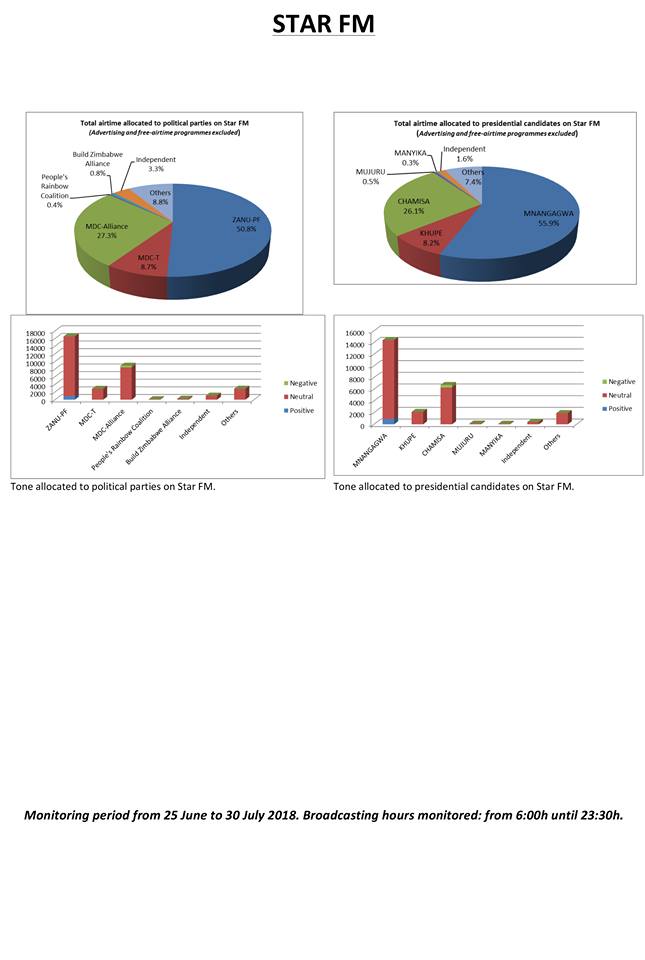
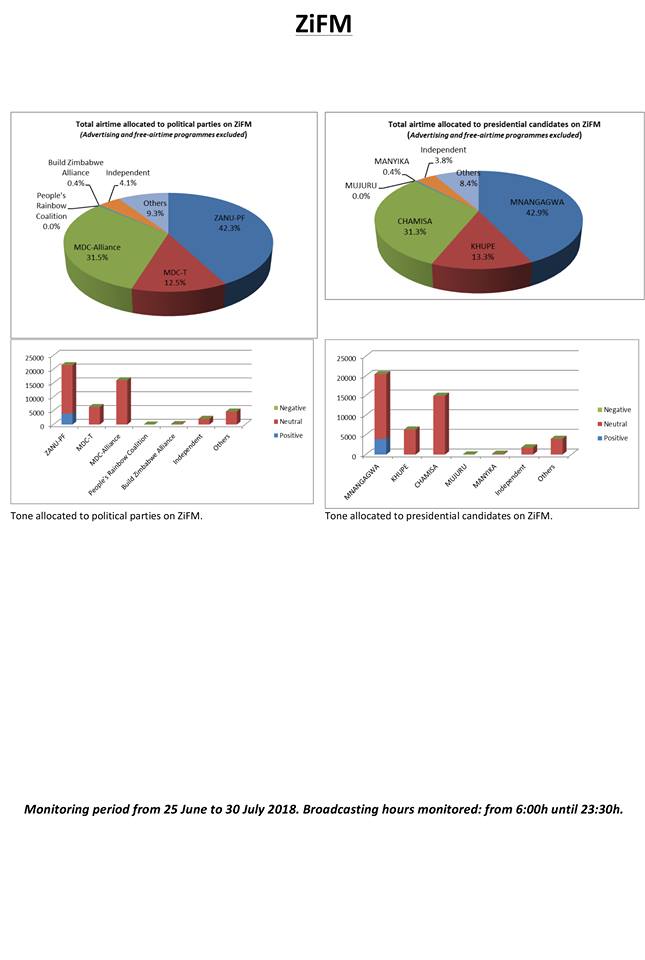
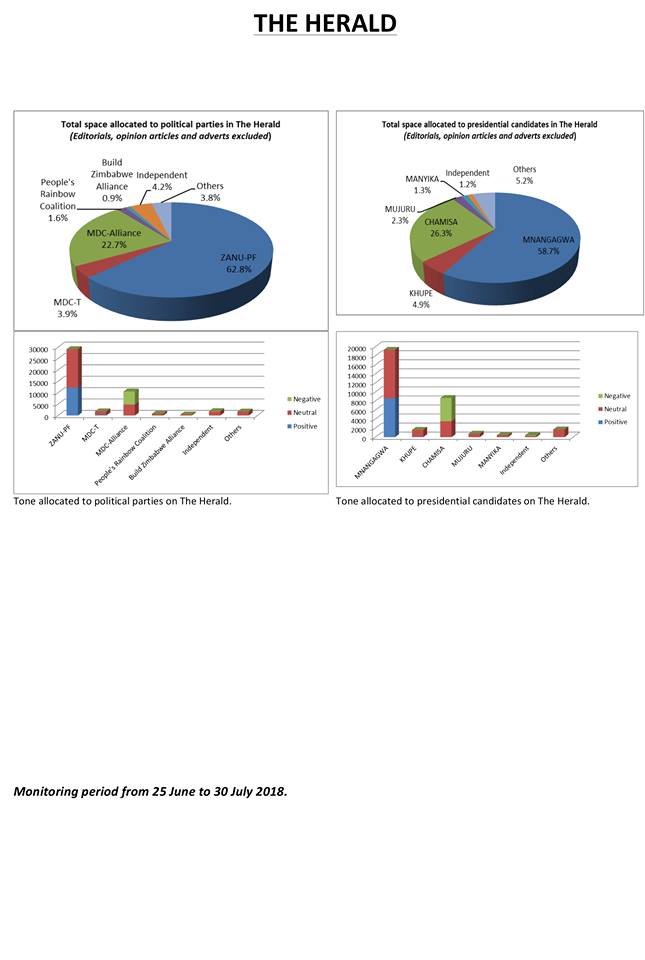
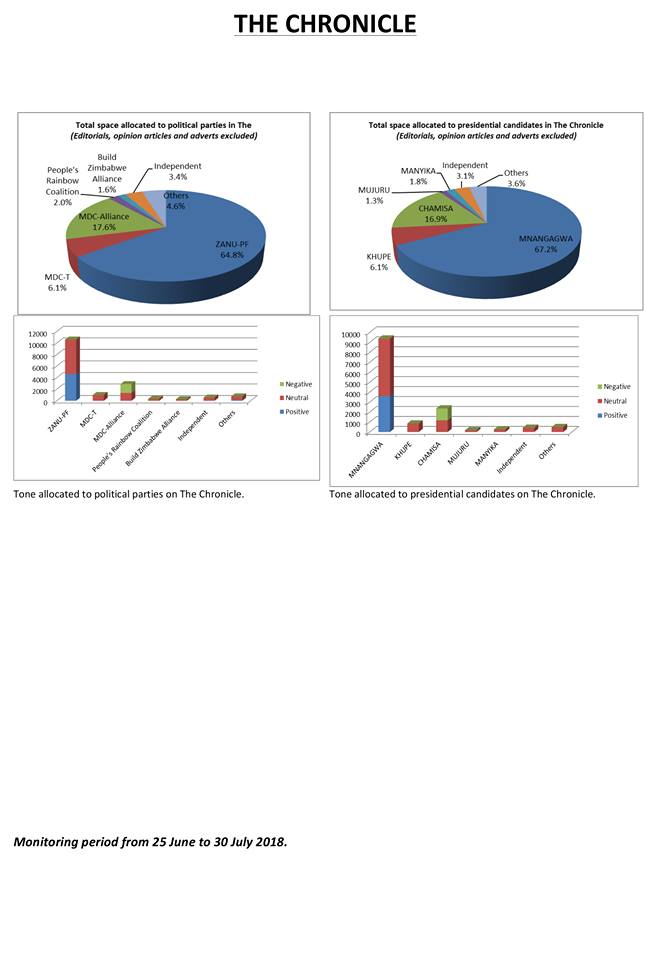
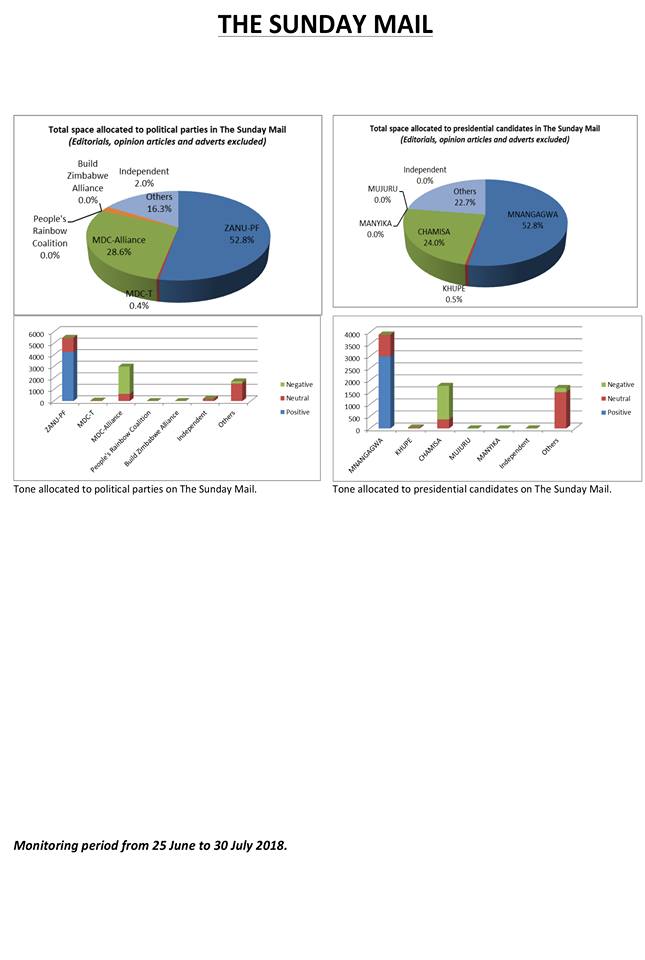
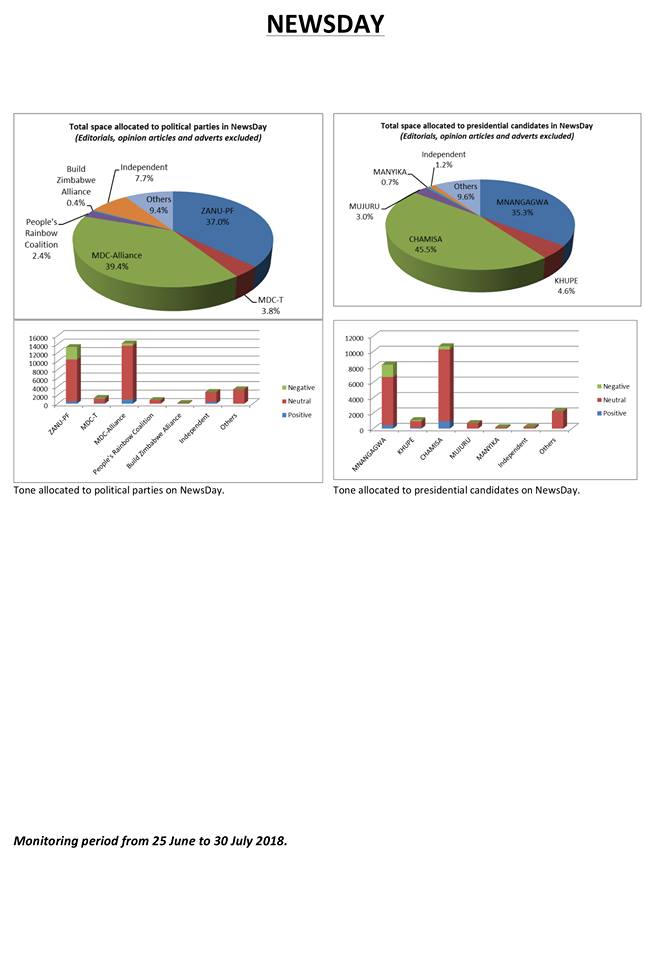
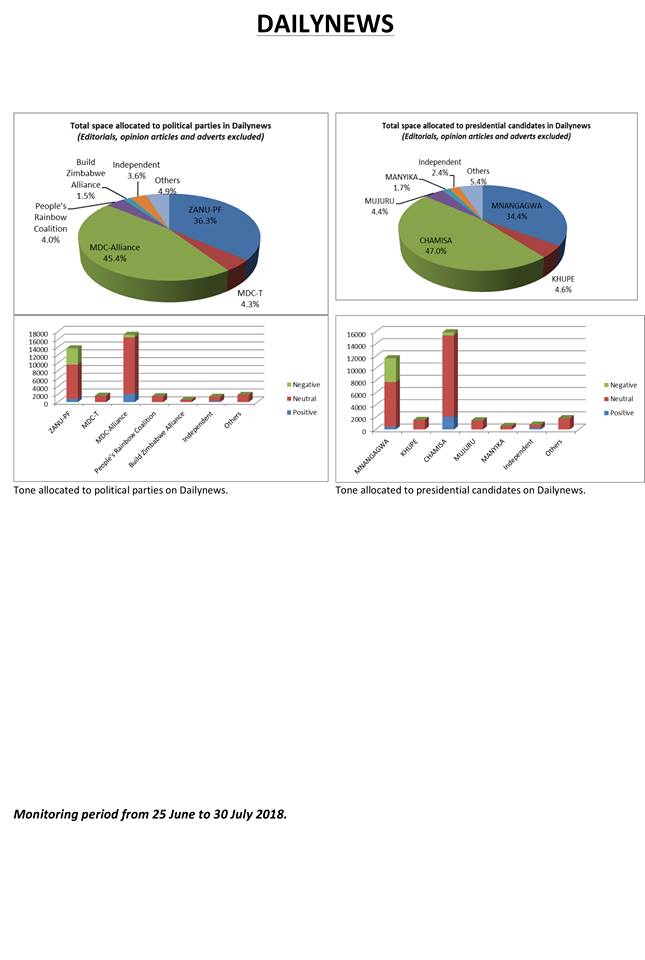
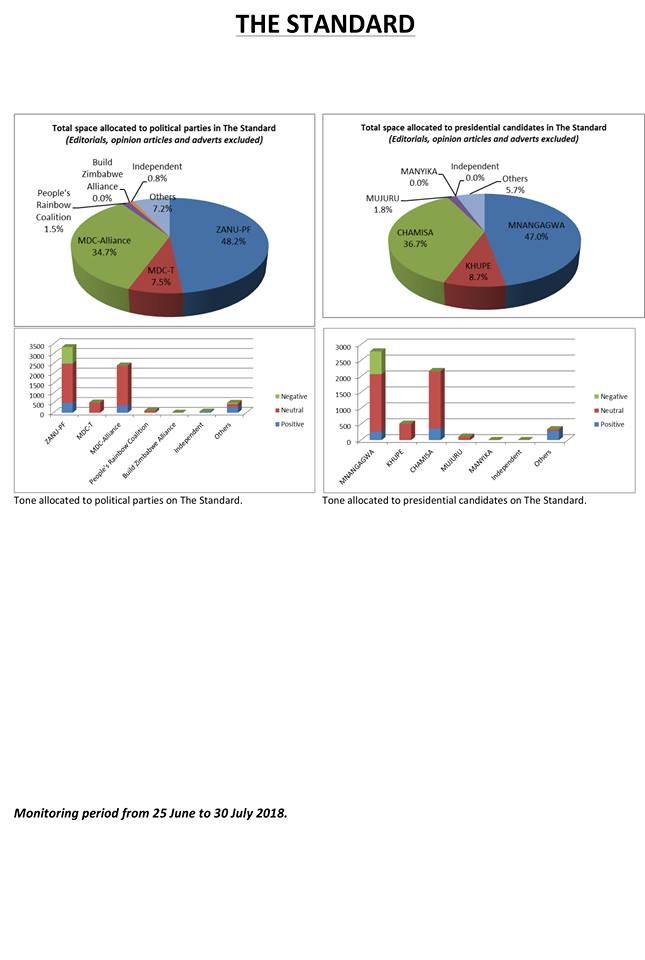
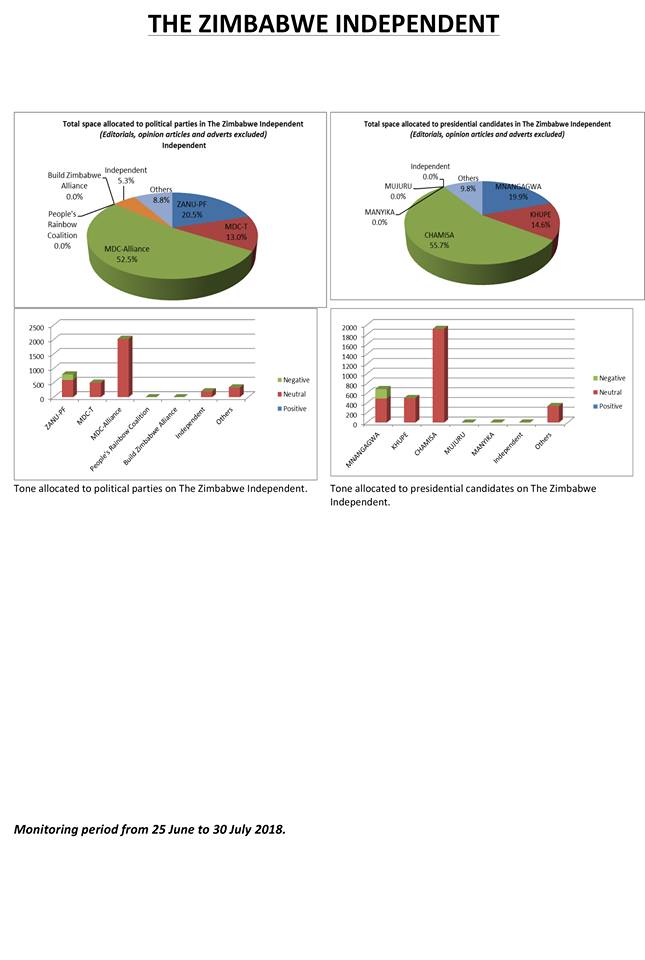
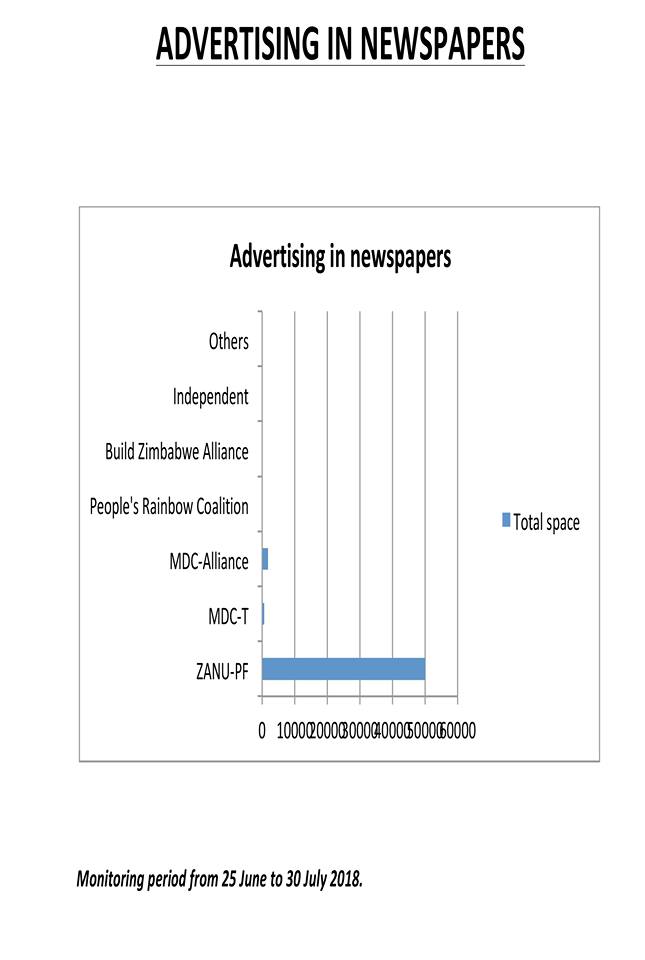

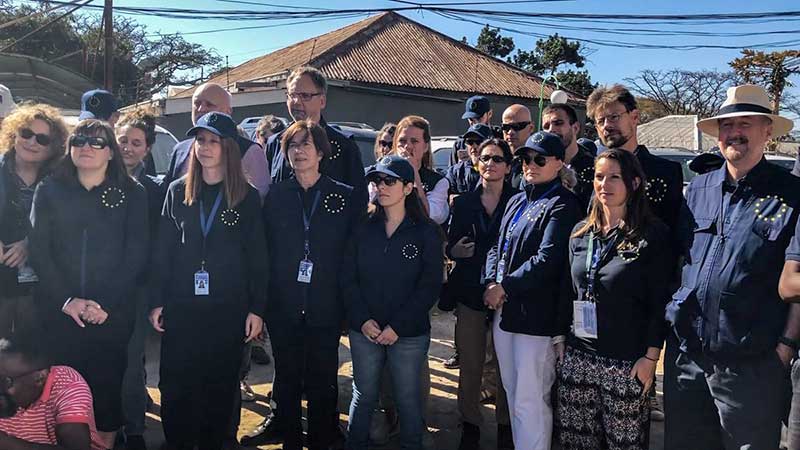

Back to top